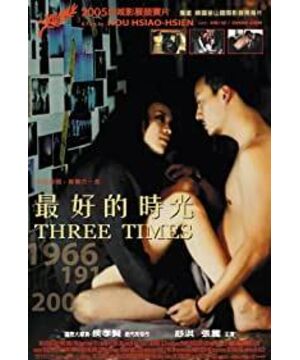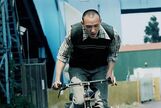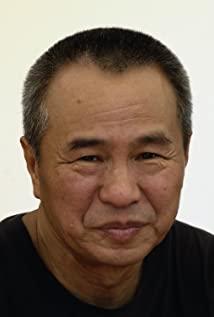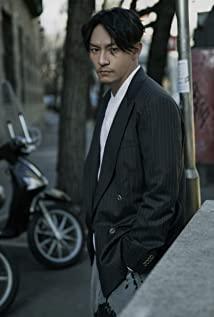Review: ★★★☆
Hou Hsiao-hsien's works in 2005, Hou Director's works are rarely disappointing, and this one is the same. This kind of delicate, unassuming and emotional work can only be seen in the films of a few Asian directors such as Hou Hsiao-hsien and Yang Dechang, and its brilliance is absolutely no less than that of other state directors.
1. It's as beautiful
as today's night. After the sultry summer night has passed, the night is already a little cool. The wind chimes on the windowsill begin to ring slightly. The night is already very deep. The movie is also very good for me. The good things in life are really lost. According to Hou Dao's understanding, those unforgettable times are the most beautiful. Thinking of those songs, the people of the youthful era, and the past, everything is beautiful. Seeing the hands clasped together in the rain, no matter whether they will be together in the future, it is undeniable that this moment has a place in their lives, and those of us who are onlookers can't help but be moved.
2. Those songs, those letters, those people
watching these songs and letters in their love dreams can't help but let you go back to your own youthful era, the only difference is that era, those songs and letters, about a lot of people will Like a pool boy, he has a different love dream. For those unrequited relationships, the older you get, the more you can discover the meaning behind those letters and songs, but that person is no longer by your side, and the promise of "Right Here For Waiting" made in that youthful age has long since followed the wind. Gone. Director Hou is very familiar with shooting such subjects. With Dongdong, Fenggui and other movies in front, the love dream is not too much, just a few simple scenes and characters, and some non-main characters are defocused. Dropped, but the effect is surprisingly good. Hou Dao even more exaggerated to say that even the lighting only uses fluorescent lamps.
3. The era of nanguan, piano and silent films
The pearl-like dripping piano sound in the dream of freedom has always amazed me, why such a Westernized musical instrument is so smooth in the passage of "Dream of Freedom" with such an obvious Chinese theme. The feeling has been lingering. Because my sensitivity to music even affects the way I watch this part. Also similar to Hou Hsiao-hsien's other "Flowers on the Sea", Director Hou's handling is also just right, and there is no fixed script for this piece of work. Some scenes, such as the boiling kettle on the small stove and the lighting of candles by Yun Dan, are definitely examples of similar films and classics of lens processing. In these small scenes, the history of Liang Gong's arrival in Taiwan can also be reflected, and only a big guide like Hou Dao can complete it. I always thought that the handling of silent films was Hou Hsiao-hsien’s tribute to the era of silent films, but when I watched Hou Hsiao-hsien’s dialogue, I found that this was not the case. According to the director’s understanding, actors needed historical discourse and context, and they adopted a smarter method because they could not be completed. He even considers the sea flower to be a linguistic way of speculation. In fact, for someone like me who grew up in the Wu language environment and loves Pingtan so much, Haitianhua is lacking in processing language and music, but no matter what the context of using "Du Shiniang" in Haitianhua is It's very accurate, but the era and tune processing from the beginning was unsuccessful, but this time I'm not familiar with Nanguan, I just think the taste is right, and I don't know about the rest.
4. Will I put pressure on her for youth and lover
? There are such problems in the dream of freedom and the dream of youth, but the age is different, the object is different, and the gender of love is different.
If you love him (her), don't put pressure on him (her).
Although I waited all night for your call. Maybe for one night, maybe for a lifetime.
View more about Three Times reviews









